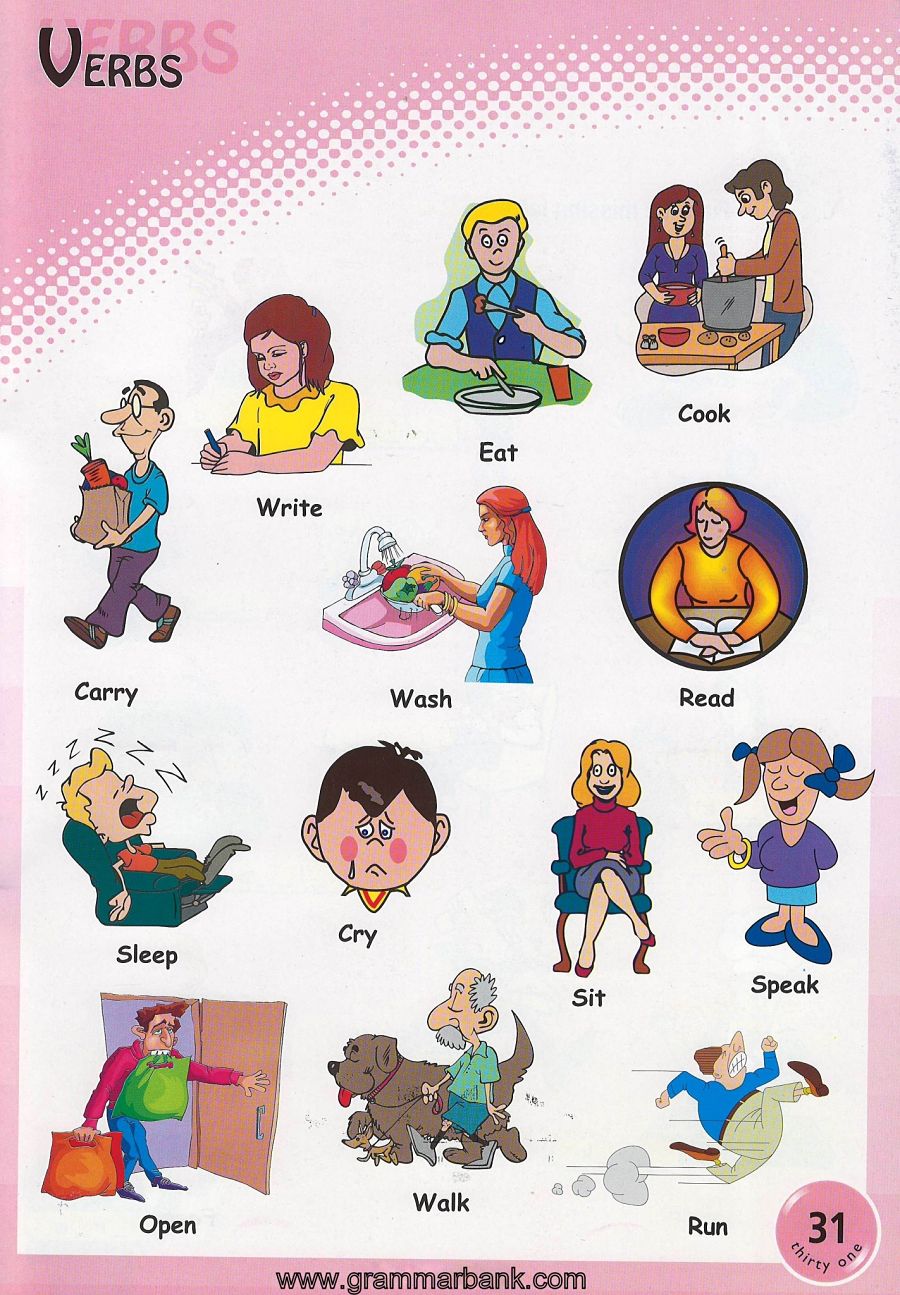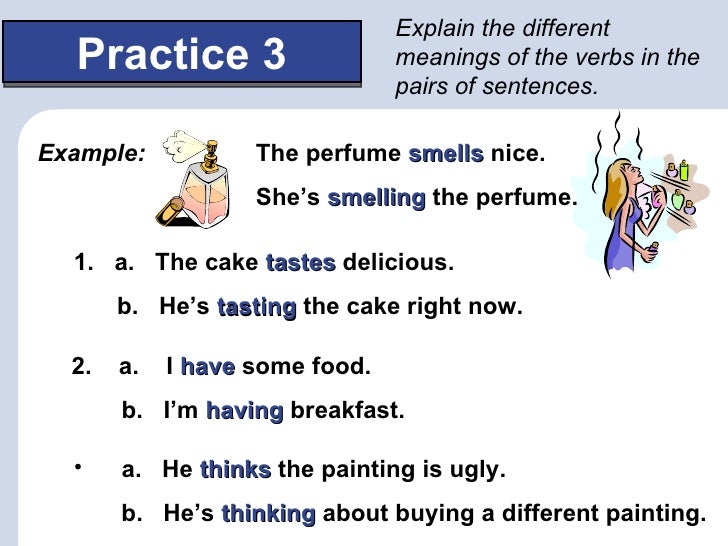10 Examples Of Verbs
noun
RELATED CONTENT

RELATED WORDS
Nearby words
- veranda,
- verandaed,
- verapamil,
- veratridine,
- veratrine,
- verb phrase,
- verb. sap.,
- verbage,
- verbal,
Origin of verb
Grammar note
Understandably, this multitalented part of speech can be analyzed and categorized in any of several ways. For example, this dictionary distinguishes between a transitive verb, labeled “(used with object),” as in The country fought two wars at the same time, and an intransitive verb, labeled “(used without object),” as in He fought in both of them. As we can see with fight, some verbs can be either transitive or intransitive.
Another analysis is offered by the grammarians Quirk, Greenbaum, Leech, and Svartvik in their renowned A Comprehensive Grammar of the English Language. They divide verbs into three categories: (1) modal auxiliary verbs, a short list comprising can, may, will, shall, could, might, would, should, and must, all of which are “helping” verbs, as in Congress will vote tomorrow, and (2) primary verbs, the smallest group— be, do, and have —all three of which can be either auxiliaries ( I am leaving for school now; I did finish my homework; I have studied enough ) or main verbs ( I am happy; I did my best; I have a good teacher ), and (3) full verbs, the largest group by far, containing all the rest.
A third approach differentiates an action verb from one that is stative. An action verb expresses something you can do ( run, study, sit, want ) or something that can happen ( leak, end, appear, collapse ). In contrast, a stative verb expresses an ongoing state or condition ( I know all the answers; we own our house; they fear failure ). Some verbs, like be, are in both camps: In she is careless, the verb is is stative, describing a permanent trait. In she was being careless in losing those documents, the verb was is an action verb, describing a specific act of carelessness. The same mutability is seen in verbs of the senses ( smell, taste, feel ): Mmm, smell that coffee [action]; the coffee smells wonderful [stative].
We can also distinguish the linking verb (more formally known as a copula ) from verbs that can take an object or be modified by an adverb. Linking verbs identify or describe a subject by connecting it with a noun, an adjective, or a prepositional phrase in a following complement ( she is a doctor; they were delighted; we will be at the party ). Other linking verbs, like feel, appear, smell, taste, look, become, and stay perform the same concatenating function. A number of them happen to be stative, but not all; get and act, for example, are both linking and action verbs ( the weather got warmer yesterday; she acted surprised ). As we can see, a single verb can be categorized in more than one way, depending on which type of analysis we subject it to.
And finally, we can look at English verbs in terms of a number of grammatical features that are expressed by changes in their form or changes in the way sentences are constructed. These features are tense2 (such as present and past), voice (active or passive), person (first, second, or third), number (singular or plural), and mood2 (such as indicative and subjunctive)—each defined at its own Dictionary.com entry.
Examples from the Web for verb
What Is A Verb
As with any emergent technology where an action is involved, the brand becomes the verb.
The Zen of YoDale EisingerAugust 2, 2014DAILY BEASTThe verb shovel is not a figure of speech; a garden shovel actually is used to serve the oysters.
A Briny, South Carolina Oyster ShackJane & Michael SternMarch 23, 2014DAILY BEASTTheir Dutch nickname, putterje, comes from the verb putten, meaning to draw water from a well.
Face to Face With ‘The Goldfinch,’ the Painting from Donna Tartt’s NovelMalcolm JonesDecember 1, 2013DAILY BEASTOne of my favorite teachers at Choate, Mr. Yankus, had a similar warning against using the verb “to be” in any essay. Insidious chapter 2 free.
Anthony Grafton: How I WriteNoah CharneyJuly 17, 2013DAILY BEAST
That was the second term with Mr. Hyde: “Gentlemen, now you will learn to write without the verb to be!”
Anthony Grafton: How I WriteNoah CharneyJuly 17, 2013DAILY BEASTEvery Proposition must have a noun and a verb — it must be proposition of Something.
Plato and the Other Companions of Sokrates, 3rd ed. Volume III (of 4)George GroteShe was the substantive mood of the present tense of the verb to be.
It did not even interest Ollyett that the verb 'to huckle' had passed into the English leader-writers' language.
Formerly a man's own was what he worked for, own being a past participle of a verb signifying to work.
English Grammar in Familiar LecturesSamuel KirkhamAfter a verb of wishing, the subjunctive is regularly used in the dependent clause.
An English GrammarW. M. Baskervill and J. W. Sewell
British Dictionary definitions forverb
noun
Give 10 Examples Of Verbs

- a word or group of words that functions as the predicate of a sentence or introduces the predicate
- (as modifier)a verb phrase
Word Origin for verb
Word Origin and History forverb
n.late 14c., from Old French verbe 'part of speech that expresses action or being,' from Latin verbum 'verb,' originally 'a word,' from PIE root *were- (cf. Avestan urvata- 'command;' Sanskrit vrata- 'command, vow;' Greek rhetor 'public speaker,' rhetra 'agreement, covenant,' eirein 'to speak, say;' Hittite weriga- 'call, summon;' Lithuanian vardas 'name;' Gothic waurd, Old English word 'word').
Culture definitions forverb
A word that represents an action or a state of being. Go, strike, travel, and exist are examples of verbs. A verb is the essential part of the predicate of a sentence. The grammatical forms of verbs include number, person, and tense. (Seeauxiliary verb, infinitive, intransitive verb, irregular verb, participle, regular verb, andtransitive verb.)
